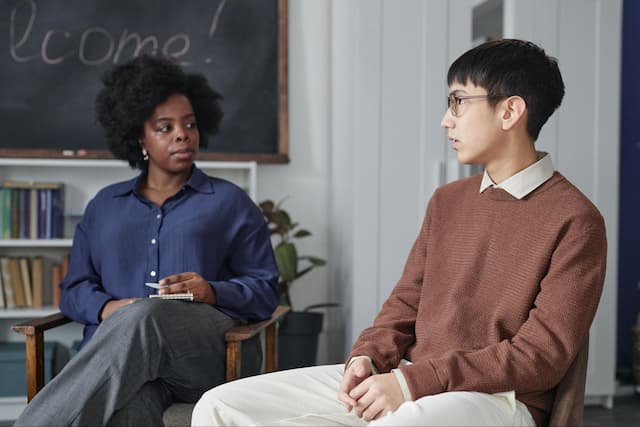Education is changing fast. Whether it’s new curriculum standards, shifting student needs, or the ever-growing role of technology, schools today face a lot of pressure to keep up. That’s where academic consultants come in.
These professionals work behind the scenes to help schools, educators, and even families make smart, informed decisions. If you’ve ever wondered what an academic consultant does—or how to become one—this article will give you the full picture.
What Is an Academic Consultant?
An academic consultant (also called an educational consultant) is someone with deep experience in education who offers expert advice to schools, districts, organisations, or sometimes individual educators and families. They’re usually brought in to help solve specific problems or to improve how something works—like a school’s literacy program, a district’s professional development, or even how a family chooses the right support for a child with learning difficulties.
You can think of them as education’s version of a coach or strategist. They help people and systems improve how they teach, learn, and lead.
What Do They Actually Do?
The day-to-day work of an academic consultant can vary a lot depending on their area of expertise. Some work at the classroom level, while others consult with school leaders or policymakers. Here are some of the most common things they help with:
1. Curriculum Advice and Design
Need help updating a curriculum to meet new national standards? Or making sure it’s inclusive and engaging for today’s learners? That’s one of the key areas academic consultants work in.
2. Professional Learning and Development
Teachers never stop learning—and consultants often run workshops, coaching sessions, and training programs to help teachers stay up to date with the latest tools, teaching strategies, and research.
3. School Improvement Planning
Sometimes schools need a fresh set of eyes to figure out what’s working and what’s not. Consultants might help develop a school-wide strategy to boost student outcomes, improve leadership, or make better use of resources.
4. Student Assessment and Data Analysis
Analysing student performance is about more than just test scores. Consultants can help schools dig into the data to find out where students are struggling and why—and what to do about it.
5. Special Education Support
Some consultants focus specifically on supporting students with additional needs. They help schools implement best practices, support teachers, and ensure compliance with disability education laws.
6. Technology Integration
With so many new digital tools out there, schools often need help choosing the right platforms and using them effectively in the classroom. This is another area where consultants shine.
What Skills Do You Need to Become an Academic Consultant?
It takes more than classroom experience to make it as an academic consultant. Yes, teaching or leadership experience is essential—but you’ll also need:
- Great communication skills – you’ll work with all kinds of people, from principals to policymakers.
- Strong analytical thinking – spotting patterns in data or identifying gaps in a program takes a sharp eye.
- Problem-solving ability – you’ll often be brought in to fix something that isn’t working.
- Project management – especially when working on big school-wide or system-level projects.
- Empathy and emotional intelligence – change can be hard. You need to understand the human side of it, too.
And perhaps most importantly, you need a genuine passion for education and helping others improve.

How Do You Become an Academic Consultant?
There’s no one-size-fits-all path, but here’s a common journey:
1. Start as a Teacher or School Leader
Most consultants begin with years of classroom or leadership experience. You need that hands-on knowledge before you can advise others.
2. Further Your Education
Many consultants pursue postgraduate study—such as a Master’s or Doctorate in Education. If you’re interested in shaping school systems or district-level change, a doctorate in K-12 leadership can give you the edge, especially when dealing with policy and strategic decision-making.
3. Choose a Niche
It helps to specialise. Whether it’s early childhood, special education, literacy, assessment, or technology—becoming an expert in one area makes you more marketable.
4. Gain Consulting Experience
You might start small—taking on a side project or volunteering on a school committee. Over time, you’ll build a portfolio of work you can share with future clients.
5. Go Independent or Join a Firm
Some consultants freelance or start their own businesses. Others work for consulting companies, school districts, education departments, or non-profits. You’ve got options.
Where Do Academic Consultants Work?
They’re found in all sorts of settings:
- Independent consultants working with schools or families
- Larger consulting firms
- Education departments or ministries
- School districts
- NGOs and education-based charities
- Universities and research institutions
Some even work internationally, helping schools or systems abroad with reform and innovation.
Academic consultants play a crucial role in shaping the future of education. From helping schools improve performance to guiding individual teachers or families, they act as change agents, problem-solvers, and partners in educational excellence. If you’re an experienced educator looking for a new challenge—and a chance to make a systemic impact—academic consulting might be the perfect next step.

